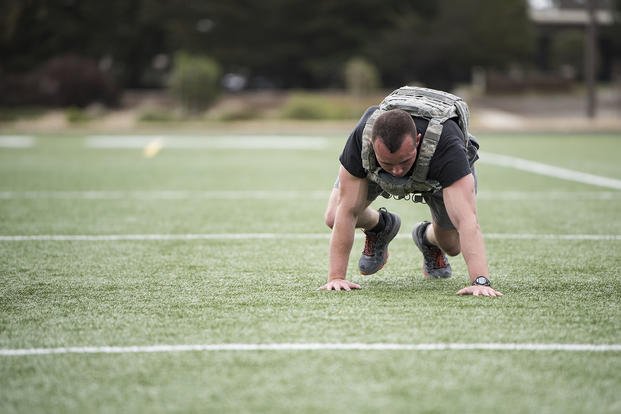Effectively using a program off the shelf that is not designed with your fitness level in mind requires you to know how to alter repetitions, running miles and times to suit your goals and current fitness levels.
Here is a very common email when people purchase books, ebooks or other programs that are not specific to them, but generic in relation to the course they are training for:
First off, I'd like to say how much I have enjoyed your "Tactical Fitness" book so far. I am currently in the middle of week two of the beginner tactical athlete regimen, and I'm loving it. I do have a few questions, however.
Do you have any recommendations on how to alter the workouts to specifically train for a police academy? (I will start applying next summer after I graduate from college.)
The workouts in the book have many optional exercises. I would take out things that do not apply to what is required of your academy. For instance, you likely will not have to do much swimming unless you are in a coastal town. You likely will not need to ruck, but learning how to walk around in your body armor and gear is something that requires practice. Replacing the rucks with a weight-vest and weight-belt walk is not a bad idea.
But the running, weights and calisthenics build general strength, power and muscle stamina needed for testing and will even prepare you for obstacle courses. You need to keep these.
If the reps are high for you, do what you can. If the miles of running are too high, pull back a notch (say 25%-50%), depending upon your fitness level. Replace running with non-impact options if you need to lose weight. There are many bike, elliptical and rowing workouts in the plan to replace running and rucking, if needed.
How long should these workouts be taking? Should I limit myself to certain times each day?
Most of these workouts are 60-90 minutes in length, but you can reduce that time if you're not emphasizing the swimming or rucking workouts. I tell people all the time: You have to do your time. There is no 30-minute gym workout that is going to prepare you for a day of military or law enforcement training.
How do I know if I am overtraining?
Learn the symptoms of what happens when you neglect recovery. Usually overtraining is more lack of recovery and happens, because something is out of balance with your rest days, sleep, nutrition, hydration and electrolytes. If any one of these are out of whack, you can exhibit many of the symptoms of overtraining. But if you are doing too much, you should realize it.
Never run 10 miles out of the blue if you haven't run in months. And never do a two-hour weight workout if you haven't lifted in months.
Stew Smith is a former Navy SEAL and fitness author certified as a Strength and Conditioning Specialist (CSCS) with the National Strength and Conditioning Association. Visit his Fitness eBook store if you're looking to start a workout program to create a healthy lifestyle. Send your fitness questions to stew@stewsmith.com.
Want to Learn More About Military Life?
Whether you're thinking of joining the military, looking for fitness and basic training tips, or keeping up with military life and benefits, Military.com has you covered. Subscribe to Military.com to have military news, updates and resources delivered directly to your inbox.


















